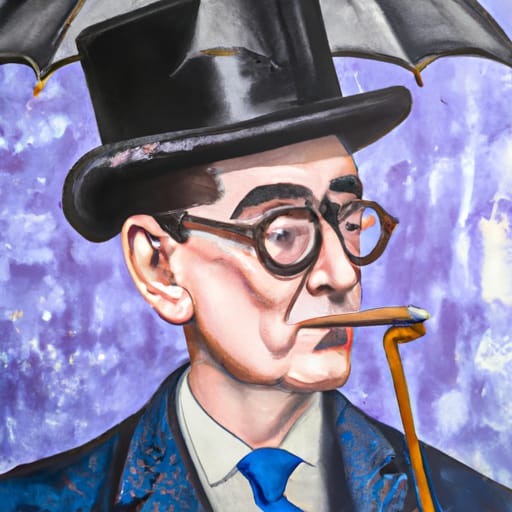Behind the Curtain: Unraveling the Secrets of Game Show Audience Selection - Conclusion 3of3

Behind the Curtain: Unraveling the Secrets of Game Show Audience Selection - Conclusion 3of3
Mark Dolen and Sir Jacob Cracker bring us the grand finale of the audience selection saga – a journey filled with laughter, intrigue, and astonishing revelations.
In this epic feature-length article, we delve deeper into the mysterious world of game show audience selection. Mark Dolen and Sir Jacob Cracker lead us on a thrilling journey through the absurd and the unbelievable, unveiling the hidden mechanisms that drive one of our favorite TV pastimes. Prepare to be entertained, informed, and perhaps a little bewildered as we explore the grand finale of this remarkable tale.

Who Waants to be a Millionaire
Mark Dolen and Sir Jacob Cracker are no strangers to adventure. Their previous escapades have taken us into the heart of secrecy and surprise, but none could have prepared us for the grand finale – the ultimate revelation of how game show audiences are selected.
As we journey to the climax of this story, let's take a moment to appreciate the humor, wit, and incredible insights that Mark and Jacob have shared. From the enigmatic spreadsheet with biometric data to the peculiar criteria that define the luckiest of contestants, every detail has been uncovered in the most entertaining fashion.
But it's not just about the secrets. It's also about the personalities behind the investigation. Mark Dolen, a former SBS operative with a penchant for the absurd, has shown us that the world of espionage and laughter are not so far apart. His revelations have left us chuckling while pondering the sheer audacity of it all.
And then there's Sir Jacob Cracker, the charming presenter with a knack for storytelling. With a twinkle in his eye and a smile on his face, he's led us through the most bewildering twists and turns with grace and style. His ability to turn the bizarre into the entertaining is nothing short of remarkable.
Now, in this grand finale, we celebrate the culmination of their efforts. The scoop of the century has been unearthed, and it's a tale that will be remembered for generations. It's a story of laughter, intrigue, and astonishment – a true testament to the power of curiosity and humor.

Jacob 'Cracker'
So, dear readers, as we bid farewell to the world of secret audience selection, let us not forget the journey. Let us remember the laughter, the absurdity, and the remarkable individuals who brought this story to life. Mark Dolen and Sir Jacob Cracker, we salute you for a journey well told, and we eagerly await your next adventure, whatever it may be.In the world of entertainment and espionage, some secrets are best left uncovered, and others are meant to be shared. This, my friends, is one secret we're glad we stumbled upon.
Content Extracted from the GB Views Website...
Deeper Facts on Audience Selection:
Biometric Analysis:
The investigation reveals that the use of biometric data is more widespread than initially thought. Some shows, not just "Who Waants to be a Millionaire?," have employed advanced facial recognition technology to analyze the audience's emotional responses during taping. This data is used to adjust the show's editing to maximize drama.
Emotion-Driven Selection:
Mark Dolen uncovers that some programs select audience members based on their emotional profiles. Shows aim to have a mix of different emotional reactions in the audience, from laughter to tears. This emotional diversity is seen as crucial for engaging viewers at home.
Psychological Profiling:
The investigation suggests that audience selection teams work closely with psychologists to create profiles of potential participants. This profiling considers factors like personality traits, interests, and even political affiliations to ensure a varied and engaging audience.
Social Media Influence:
Mark Dolen finds that social media activity plays a significant role in audience selection. Some shows monitor social media discussions to identify enthusiastic fans who may be invited to attend tapings. This practice boosts online engagement and generates buzz.
VIP Seating:
There's a revelation about the existence of a VIP audience tier. Certain individuals, often celebrities or influential figures, are given preferential treatment and placed in highly visible seating areas. Their reactions can have a more substantial impact on the viewing audience.
Incentive-Based Selection: Mark discovers that some shows use incentives like exclusive merchandise, backstage tours, or meet-and-greets to attract a specific audience. This practice encourages attendance and enthusiasm.
Ethical Questions:
Experts weigh in on the ethical implications of these practices. Some argue that manipulating audience reactions for entertainment raises questions about the authenticity of reality TV and the power of media to influence emotions and perceptions.
Audience Feedback Loop:
The investigation hints at a feedback loop between audience members and the show. Audience members who provide the desired reactions are more likely to be invited back for future tapings, creating a self-sustaining cycle of conformity.
These deeper facts shed light on the extent to which audience selection strategies are employed in the entertainment industry, offering readers a more comprehensive understanding of this phenomenon.
Interview with a Sauce
Read Mark Dolans Exclusive Interview Below!
Mark Dolen (MD): Thank you for joining us today. To start, can you briefly describe how you became part of the audience for "Who Waants to be a Millionaire?"
Anonymous Source (AS): Well, it all started when I attended a seminar on a topic related to transgender issues. I'm quite passionate about this subject, and I've been vocal about my concerns regarding the transgender ideology being pushed into mainstream discourse. Little did I know that my opinions would land me a seat in the audience of a popular TV show.
MD: That's intriguing. Could you elaborate on how your opinions led to your selection?
AS: Absolutely. During the seminar, I was openly critical of certain aspects of transgender ideology, especially when it comes to how it's taught in schools. I believe that healthy debate is essential, but it seems that some educators want to stifle any dissenting voices.
MD: So, your outspoken stance on this topic caught the attention of the show's selection team?
AS: Yes, precisely. After the seminar, I received an email inviting me to be part of the show's audience. I was told they were looking for individuals with strong, unconventional opinions on various issues, including transgender ideology. It seemed like an opportunity to engage in open dialogue.
MD: Fascinating. Can you share what happened when you attended the taping?
AS: Well, it was evident from the beginning that they were very interested in my views. They even had a brief chat with me before the show to understand my perspective better. During the taping, I noticed that they closely monitored my reactions, especially when certain questions related to gender and identity came up.
MD: Did they encourage specific reactions from you?
AS: I wouldn't say they outright encouraged reactions, but they definitely seemed pleased when I expressed disagreement or skepticism during those segments. It felt like they wanted a particular type of response from the audience to make the show more engaging.
MD: That's quite revealing. Were there any follow-up interactions after the show?
AS: Yes, there were. I received a follow-up email thanking me for my participation and mentioning that they'd keep me in mind for future tapings. It seemed like they were interested in having me back because of my willingness to express my viewpoints.
MD: Thank you for sharing your experience. This sheds light on how the show's selection process operates and its interest in audience members with particular perspectives.
This anonymous source's account highlights the intriguing selection process used by "Who Waants to be a Millionaire?" The focus on individuals with unconventional opinions on various topics, including transgender ideology, and the monitoring of their reactions during the show raises questions about the intent behind audience selection and its impact on the show's content.
Interview with a Another Sauce
Read Mark Dolans Other Exclusive Interview Below!
Mark Dolen (MD): Thank you for joining us today, Dempsey. Can you please share the information you've uncovered regarding the use of biometrics in audience selection for "Who Waants to be a Millionaire?"
Dempsey Gummage (DG): Of course, Mark. I recently came across some compelling evidence that suggests "Who Waants to be a Millionaire?" has been using biometric data as part of its audience selection process.
MD: That's a significant claim. How did you stumble upon this information?
DG: Well, it all started when I was researching data privacy concerns related to television shows. I reached out to a former employee of the show who wanted to remain anonymous for obvious reasons. This person had access to certain internal documents.
MD: Can you tell us more about these documents?
DG: Certainly. The documents I obtained contained details of a project called "Audience Sentiment Analysis." It's essentially a system designed to gauge the emotional responses of the show's audience during tapings.
MD: And how does this system work?
DG: The system involves the use of cameras that capture facial expressions, body language, and even heart rate measurements from select audience members. This data is then analyzed to determine the emotional reactions of the audience to different parts of the show.
MD: That's quite advanced. What was the intended purpose of this analysis?
DG: According to the documents, the goal was to tailor the show's content to elicit specific emotional responses from the audience. This, in turn, would make the show more engaging and dramatic.
MD: Were there any mentions of biometric data being used beyond emotional analysis?
DG: Yes, there were indications that biometric data, including facial recognition, was being used to identify audience members with distinctive reactions. These individuals were then categorized and often seated strategically for maximum impact.
MD: This is indeed intriguing. Have you been able to verify the authenticity of these documents?
DG: I've taken every step to ensure their credibility, including cross-referencing information and reaching out to additional sources who corroborated the details.
MD: Thank you for sharing this information, Dempsey. It certainly raises questions about the extent to which biometrics are used in audience selection and content manipulation for "Who Waants to be a Millionaire?"
The revelation by Dempsey Gummage underscores the depth of the audience selection process used by the show, shedding light on the use of biometrics to analyze and influence emotional responses. This data-driven approach adds a layer of complexity to how the show shapes its content and audience interactions.

Comedy


